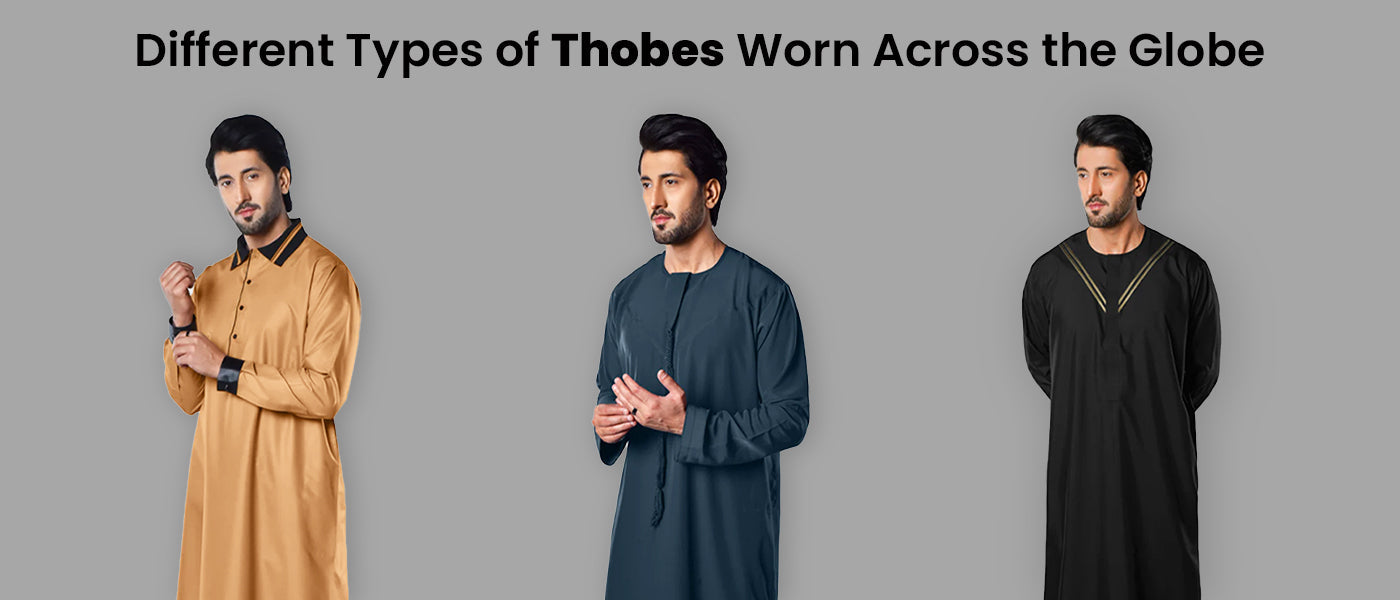Let’s imagine this: you’re walking through a busy market during Eid in London, Birmingham, or Manchester. You see families dressed in their finest, and many of the men are wearing long, elegant robes—that, my friend, is a thobe, one of the most recognizable pieces of Islamic clothing for men.
But what exactly is a thobe? Why do people wear it? And is it just a traditional thing, or is there more to it? Don’t worry—we’ve got you. Let’s break it all down together.
So, What Is a Thobe?
A thobe (also spelled thawb, dishdasha, or kandura depending on the region) is a traditional long robe worn mainly by men in many Arab and Muslim-majority countries. It typically falls to the ankles, has long sleeves, and is made of lightweight fabric, usually a blend of cotton and polyester. In cooler regions, you may see it made of heavier fabrics, such as wool.
The word thobe literally means "garment" in Arabic. Simple, right?
But while the meaning is simple, the story behind it isn't. The thobe for men isn't just an item of clothing—it's a symbol of modesty, tradition, and identity. It's worn with pride during religious events, family gatherings, and even casual daily life.
DID YOU KNOW?
Over 60% of British Muslims prefer wearing traditional attire, such as a thobe during religious events (e.g., Jummah, Eid) rather than Western suits.
A Little Backstory—Where Did It Come From?
You may be surprised to learn that the thobe dress has been in existence for centuries. It originated in the Arabian Peninsula and has deep cultural and religious importance.
Back in the day, the desert climate was brutal—hot during the day and cold at night. People needed a garment that could protect them from sunburns during the day, stay breathable in the heat, and still feel cozy when the temperature dropped. The thobe was the perfect answer. Loose enough to keep air flowing, long enough to protect the skin, and simple enough to move freely.
And here's an amazing fact: the Prophet Muhammad (PBUH) himself used to wear garments very similar to those we now call thobes. That's one reason why it's considered a sunnah (a practice of the Prophet), and why many Muslim men wear it for religious reasons as well.
Is It Just for Religious People?
Not at all!
While many Muslim men wear the Arabic thobe for religious or modesty reasons, you don’t have to be religious to wear one. It’s also about culture, identity, and even fashion.
Today, you’ll see people wearing thobes at Friday prayers, weddings, formal events, casual hangouts, and even on the beach (yes, really). It’s part of everyday life in many countries.
Who Wears Thobes?
Honestly? All kinds of people.
From professionals heading to Jummah prayers to students attending Islamic events, thobes are worn by men of all ages and backgrounds. You’ll spot them during Ramadan, Eid, Nikah ceremonies, and even just for daily wear in cities like London, Birmingham, Bradford, and Manchester.
And it’s not just limited to those from Middle Eastern backgrounds. Many British Muslims, as well as people from Pakistani, Somali, Bangladeshi, and North African communities, love wearing thobes. Some wear them for religious reasons, others for style and comfort, and many for both.
Can I Wear a Thobe Too?
Absolutely—you don’t need to be from a specific culture to appreciate and wear a traditional thobe. If you're drawn to its elegance, modesty, or comfort, go ahead and try one. Many people in the UK wear thobes simply because they feel good, look dignified and suit both special occasions and everyday life.
No matter if you're attending a family gathering, heading to the mosque, or looking for a more modest and comfortable outfit, a thobe is a great choice. And the best part? You don’t need to travel abroad to find one—you can shop for high-quality thobes right here in the UK.
Choosing Your First Thobe
Thinking of buying one? Here are a few quick tips:
- Fabric matters: Opt for something light, smooth, and breathable—especially if you’ll be wearing it for long periods or on warmer days.
- Tailoring is key: A well-fitted thobe for men looks smart. Some prefer a slim fit, others like it loose.
- Check the length: Traditionally, a thobe should end just above the ankles—not too short, not too long.
- Look for quality: It’s worth investing in a well-stitched, high-quality thobe. A good one can last for years if you take care of it.
- Think about the occasion: Some thobes are simple and perfect for daily wear, while others feature embroidered details or premium fabrics, ideal for Eid, Nikah ceremonies, or special gatherings. Pick a style that suits your purpose.
Searching for a High-Quality Thobe?
Now that you know all about what a thobe is and why it matters, you might be wondering, "Where can I find a luxury thobes for men in UK?"
Let us introduce you to Alif Thobes.
Alif Thobes started with a simple idea: to celebrate modest fashion and cultural pride. We know what a thobe means to you—it's not just about looking good (though you will absolutely look good); it's about feeling connected to your identity, your faith, and your roots. That's why every piece we create reflects dignity, devotion, and the values that have been passed down through generations.
And don't worry—we've made sure there's something for everyone.
- Different sizes? Check.
- A variety of colors and designs? Absolutely.
- From everyday comfort to special occasions? Everything you need is right here.
Shop by Category:
- Trending
- Premium
- Classic
- Signature
So, if you’re looking for luxury thobes for men in UK that feel as good as they look, Alif Thobes is the place to start. Take a look—you might just find your new favourite.
With this in Mind
In a world where trends change fast and outfits go out of fashion every few months, the thobe has stood the test of time. It’s not just a robe—it’s a symbol of identity, culture, and pride.
From Friday prayers in East London to weddings in Birmingham and the streets of Riyadh, the thobe carries history with every stitch.
So next time you see someone in a Muslim thobe, don’t just see a garment. See the centuries of tradition, faith, and pride woven into it. And who knows? You might just find yourself trying one on.


